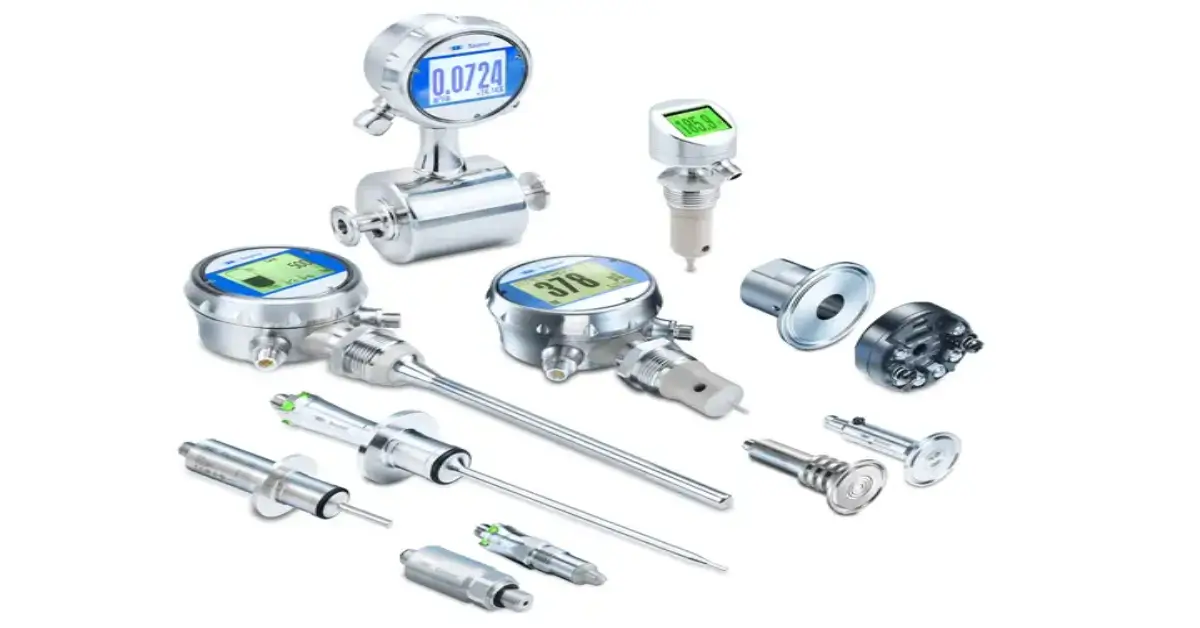Industrial instrumentation is the science of measurement and control. It encompasses the vast array of devices, sensors, and systems used to monitor, measure, and regulate physical variables like pressure, temperature, level, and flow within industrial processes.
Think of it as the central nervous system for a factory or plant; it provides the critical real-time data needed to make informed decisions, ensuring everything operates safely, efficiently, and consistently. Without accurate instrumentation, processes would be blind, unreliable, and potentially dangerous.
Key Aspects of Instrumentation: The Big Four Measurements
Four fundamental variables, expertly managed by instrumentation, are at the heart of most processes.
- Pressure: The force applied by a gas or liquid on a surface. It’s crucial for containing energy within systems.
- Example: A pressure gauge on a compressed air tank ensures it doesn’t exceed its maximum safe working pressure, preventing a catastrophic rupture.
- Level: The height of a substance (liquid or solid) in a vessel, tank, or silo. It’s essential for inventory management and preventing overfills.
- Example: A level gauge on a fuel storage tank tells operators how much product is available, ensuring a facility doesn’t run out unexpectedly during a critical operation.
- Flow: The rate at which a fluid or gas moves through a pipe. It is key to managing material consumption and production rates.
- Example: A flow meter on a chemical injection skid precisely measures the exact amount of additive being mixed into a main product, guaranteeing the final mixture’s quality and consistency.
- Temperature: The degree of hotness or coldness in a system. It is vital for reaction control, safety, and product quality.
- Example: A temperature gauge in a brewery’s mash tun ensures the grains are held at the perfect temperature to activate enzymes, which is essential for converting starches into fermentable sugars.
Benefits of Instrumentation: More Than Just Numbers
Investing in high-quality instrumentation delivers tangible returns across your entire operation.
- Safety: This is the top priority. Instruments act as the first line of defense, preventing disasters like equipment over-pressurization, tank overfills, or overheating.
- Efficiency & Cost Savings: By providing precise data, instrumentation helps optimize resource use. You use exactly the amount of energy, water, or raw materials needed, reducing waste and lowering operational costs.
- Quality Control: Consistent processes create consistent products. Instrumentation ensures every batch meets the same specifications, protecting your brand’s reputation.
- Downtime: Predictive maintenance is powered by instrumentation. Small changes in vibration, temperature, or pressure can signal an impending failure, allowing you to schedule repairs before a costly, unplanned shutdown occurs.
Why is precise instrumentation non-negotiable?
The old adage is true: “You can’t control what you don’t measure.” Guessing leads to inefficiency, product waste, and risk. Instrumentation replaces guesswork with hard data, providing the visibility required to automate complex processes, protect multi-million dollar assets, and make strategic decisions that boost profitability.
Examples of Instruments in Action:
- Oil & Gas: A pressure gauge on a wellhead monitor ensures extraction pressures are safe and optimal.
- Water Treatment: A pH sensor (a type of analytical instrument) constantly measures water acidity to ensure the correct dosage of treatment chemicals.
- Power Generation: A vibration monitor on a turbine shaft detects unusual oscillations, signaling the need for maintenance before a breakdown happens.
- Food & Beverage: A sanitary temperature indicator in a pasteurization line verifies that someone has heated milk to the required temperature to ensure it is safe for consumption.
The Bottom Line
Instrumentation is not an overhead cost; it is a foundational investment in the safety, intelligence, and profitability of your industrial operations.
Choosing robust, accurate, and reliable instruments from a provider like ADYAA ensures your process control is in expert hands, giving you peace of mind and a clear competitive advantage.
